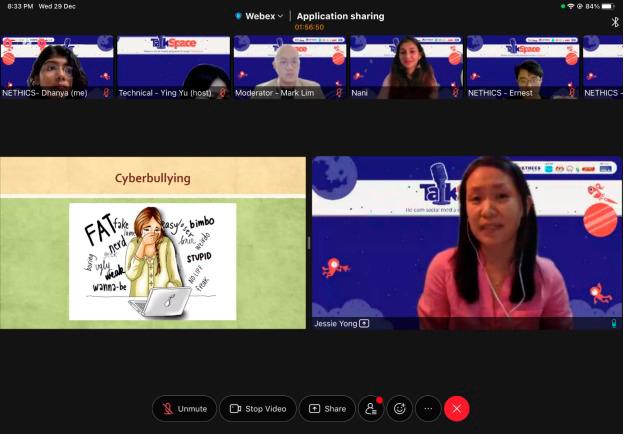Cyberbullying Among The Malaysian Youth A Prevalent Issue
New research suggests that increased hours spent online may be associated with cyberbullying and toxic behaviours.
Malaysia ranks second in Asia for cyberbullying among youth, with three out of every 10 young Malaysians being victims of cyberbullying
Due to these alarming statistics, Persuasive Communication final year students of the School of Communication at Universiti Sains Malaysia organised TalkSpace — a webinar to discuss cyberbullying — as a means to educate Malaysian youth on this important issue.
It was carried out as an active discussion to raise awareness among social media users, particularly youth, about the potential consequences of cyberbullying due to poor social media etiquette.
According to Bernama, one of the guest speakers at the event was a Jessie Yong Tse Shing, a part-time lecturer at Tunku Abdul Rahman University College (TARUC) and a Master’s holder from the School of Communication, Universiti Sains Malaysia, that focuses her research on cyberbullying among youth.
Based on her findings and observations, Jessie shared that such behaviour could be the projection of their own unhappiness due to being deprived of their basic needs.
"According to Glasser's Choice Theory, these needs are survival, belonging (to love, to be loved, and to be of value), power, freedom, and fun," she explained to Bernama in an interview.
She added that those with lower rates of global self-worth, social acceptability, and popularity were also likely to engage in cyberbullying, as studies have shown that cyberbullies were often socially incompetent individuals.
Jessie also addressed an issue that is often ignored, which is the importance of providing a safe space for victims of cyberbullying and educating the cyberbullies.
The TalkSpace webinar on 29 December 2021 was held via Cisco Webex and was the first organised by the students, which saw the participation of over 400 people.
Image via theSundailyAs social media platforms continue to grow in popularity, youths are spending more of their time online navigating a complex virtual world
New research suggests that these increased hours spent online may be associated with cyberbullying and toxic behaviours.
The students have also launched a campaign called NETHICS, aimed at promoting proper social media etiquette and curbing cyber harassment.
Project director Larissa Lorelle Christian said the campaign would give youths the opportunity to address issues of cyberbullying and aspires to become a revolution to rectify Malaysian youths' declining online morals.
What counts as cyberbullying?
Cyberbullying is any type of harassing, threatening, demeaning language. It can include sharing personal or private information about someone else causing embarrassment or humiliation. Typically, this is done through mean comments, online rumours, and even sexual remarks. They're usually connected with appearance, intelligence, race, or sexuality.
Some cyberbullying crosses the line into unlawful or criminal behaviour.
Essentially, anything that is posted online that’s intended to hurt or upset someone else, regardless of what the topic is, is considered to be cyberbullying.
Asking for help is not a sign of weakness.
If you or anyone you know may be at risk of suicide, please call these Malaysian hotlines:
1. BEFRIENDERS KL
24-hour
Contact: +603-76272929
Skype: BefKL Skype 1
Email: [email protected]
Website | Facebook | Twitter`
2. TALIAN KASIH
24-hour
Contact: 15999
WhatsApp: +6019-2615999
Email: [email protected]
Website | Facebook
For a more thorough directory of resources, head over to the Malaysian Mental Health Association's website.
